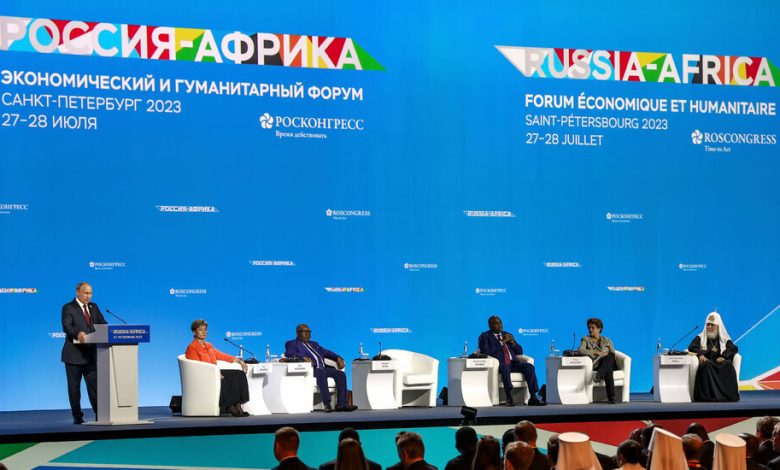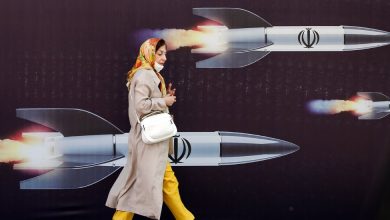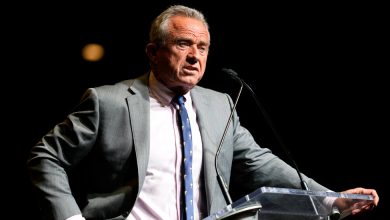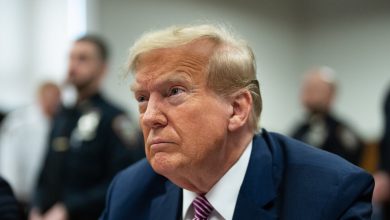Putin Promises Free Grain at Africa Summit, Aiming to Help Russia’s Image

President Vladimir V. Putin of Russia pledged on Thursday to ship free grain to at least six African countries over the next four months, scrambling to shore up Moscow’s image on the continent in the wake of the Kremlin’s refusal to extend a deal that had protected Ukrainian grain exports that help feed millions of people around the world.
Mr. Putin, speaking at a summit for African countries in St. Petersburg that drew far fewer African leaders than its 2019 iteration, insisted in a keynote speech that Western hypocrisy rather than Russia’s invasion of Ukraine was to blame for disruptions in the global food supply.
“Nothing happened of what was discussed and promised to us,” Mr. Putin said, repeating his assertion that the West had failed to fulfill its end of the grain deal and had done nothing to clear the way for Russian food and fertilizer exports.
He added that those casting Russia as an unreliable food supplier were “telling lies,” which he said had “been the practice of some Western states for decades, if not centuries.”
Russia’s exit from the grain deal last week drew a global outcry, putting Mr. Putin on the defensive amid his long-running effort to draw African countries to Russia’s side in its geopolitical conflict with the United States. The pomp of the summit on Thursday in the storied city St. Petersburg — the Russian imperial capital built by Peter the Great, and also Mr. Putin’s hometown — appeared intended to signal to African leaders that Russia was their true friend.
Mr. Putin said that Russia would deliver 25,000 to 50,000 tons of free grain each to Burkina Faso, the Central African Republic, Eritrea, Mali, Somalia and Zimbabwe in the next three to four months.
“We will also provide for the free delivery of the products to the consumers,” he said.
Despite Mr. Putin’s profession of charity, there appeared to be a geopolitical undertone to the list of recipients of free Russian grain. Of the six, only Somalia voted against Russia at the United Nations in February in supporting a resolution that called for an end to the war in Ukraine. In Mali and the Central African Republic, Russia’s Wagner mercenary group has propped up authoritarian governments.
The Kremlin also sought to portray Russia as a spiritual ally of Africa — as a bastion of conservative values, in contrast to a godless West. The summit was officially billed as not only an economic forum, but also a “humanitarian” one, as Mr. Putin increasingly deploys conservative rhetoric to win international, and not just domestic, support.




